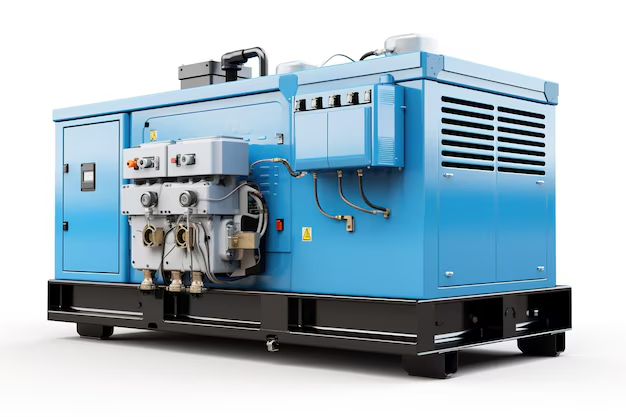Monday to Saturday - 8:00 -17:30

Electric generators are one of the basic devices that are indispensable in our daily life, they provide us with the electrical energy necessary to power various appliances and tools, whether in homes, factories, during trips and camping. Generators play a vital role in ensuring the continuity of basic services in the event of a power outage, and they are also used in remote areas that are not connected to the electricity grid.
What are electric generators
An electric generator is a device that converts mechanical energy into electrical energy. Generators work on the principle of electromagnetic induction, in which an alternating electric current is generated when a conductive coil rotates inside a magnetic field.
Types of electric generators:
Generators are available in different types and sizes, and each type has its own uses. The most important types of generators are:
Diesel generators: characterized by their high power and torque, they are widely used in industries and areas that need large power.
Gasoline generators: characterized by their small size and lightness, they are used in places that need mobile energy, such as construction sites and excursions.
Gas electric generators: powered by natural gas or propane, they are characterized by their high efficiency and low operating cost.
Hybrid generators: combine two or more types of fuel, which increases their flexibility and efficiency.
Electrical generator components:
The electric generator is generally composed of the following parts:
Engine: converts mechanical energy (such as combustion energy in diesel or gasoline engines) into kinetic energy with which the coils rotate.
Coils: conductive coils that cut magnetic field lines, generating an electric current.
Magnet: generates the magnetic field necessary to generate electric current.
Voltage regulator: it serves to control the mains voltage generated by the generator.
Uses of electric generators:
Electric generators are used in many applications, including:
Energy saving in remote areas: where there is no electricity grid available.
Provide backup power in case of power outages: in homes, factories, hospitals.
Energy saving at construction sites and temporary projects.
Energy saving in outdoor activities, excursions, camping.
Operation of electrical equipment and appliances in places where other energy sources are not available.
Tips for choosing the right electrical generator:
When choosing an electric generator, the following factors should be considered:
Generator capacity: the generator capacity must be sufficient to power all the devices you want to operate.
Fuel type: choose the appropriate fuel type for your application (diesel, gasoline, gas).
Generator size: the size of the generator should be suitable for the available space.
Noise level: if you are going to use the generator in residential areas, choose a low-noise generator.
Energy efficiency: choose a generator that is highly efficient to save energy and reduce costs.
Generator maintenance:
To ensure the efficient operation of the electric generator and a long service life, its regular maintenance should be carried out, which includes:
Change oil and filters regularly.
Inspect the belts and make sure they are tightened correctly.
Clean the radiator and radiator.
Check the battery and charge it regularly.
Conclusion:
Generators are vital devices that play an important role in our daily lives. By making the right decision when buying a generator and performing its regular maintenance, you can ensure the continuity of the supply of electrical energy at any time and anywhere.

